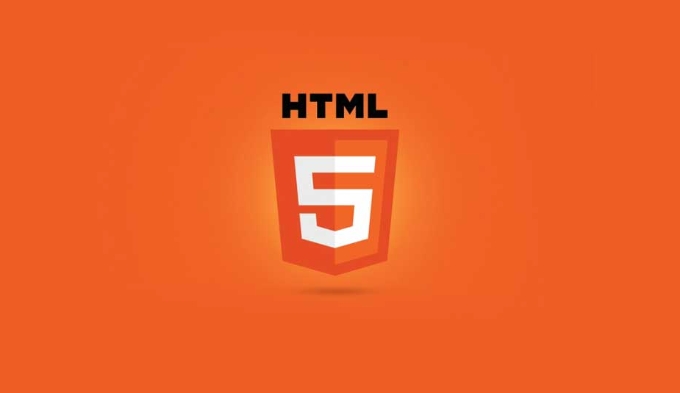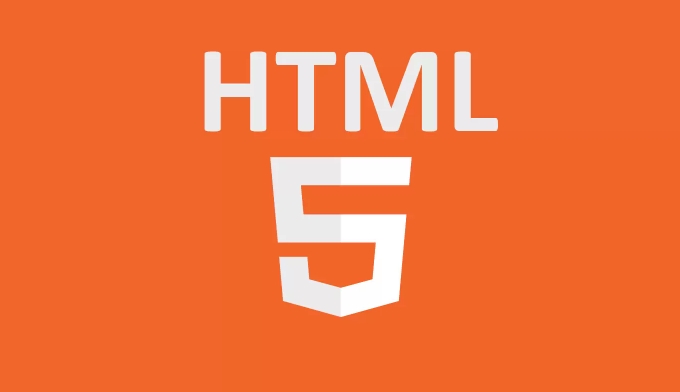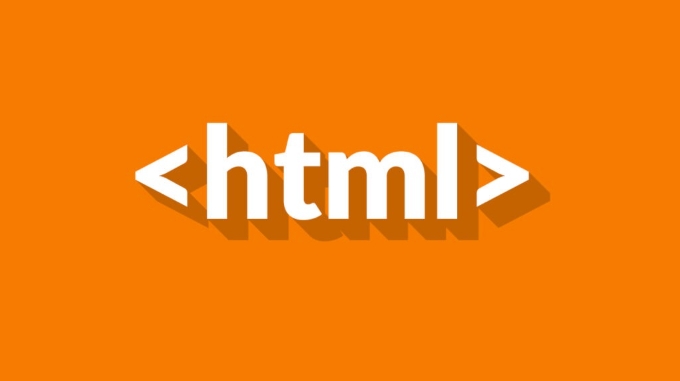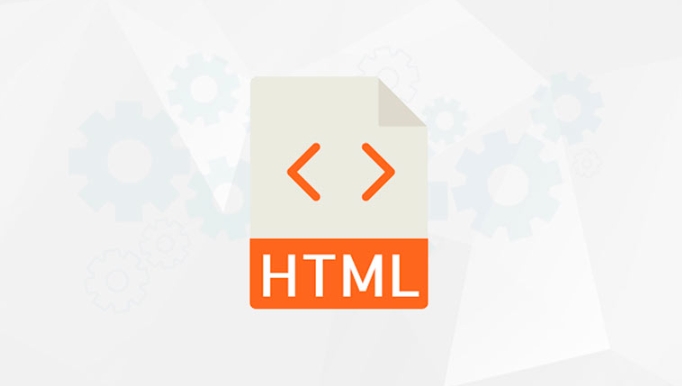Use <mark> tags to highlight text semantically, often used to identify search results or important content; 2. Custom styles such as background colors, text colors and borders can be customized through CSS; 3. It should be used in contexts with practical significance, rather than just visual decoration to improve accessibility and SEO effects.

To highlight text with the <mark></mark> tag in HTML, simply wrap the text you want to highlight with <mark></mark> and . This tag is specifically designed to mark or highlight text for reference, due to its relevance in another context, or for emphasis.
 tag?" />
tag?" />Basic Syntax
<mark>Highlighted text goes here</mark>
When rendered in a browser, the content inside the <mark> tag typically appears with a yellow background by default, though this can be customized with CSS.
1. Use the <mark> Tag for Contextual Highlights
The <mark> tag is semantic, meaning it tells both browsers and assistive technologies that the enclosed text is highlighted for a reason—like a search result or important note.
 tag?" />
tag?" />Example:
<p>You searched for <mark>HTML</mark>. Here are the results.</p>
This clearly shows that "HTML" is the matched search term.
 tag?" />
tag?" />2. Style the Highlight with CSS (Optional)
While the default highlight is yellow, you can change the appearance using CSS:
mark {
background-color: lightblue;
color: darkblue;
padding: 2px 4px;
border-radius: 3px;
} Now all <mark> elements will have a light blue background and slightly styled edges.
You can also use different classes for varying highlights:
<mark class="yellow">Default highlight</mark> <mark class="green">Success note</mark>
With CSS:
mark.green {
background-color: #aef2a6;
} 3. When to Use <mark></mark> (Best Practices)
- ? Use it to highlight search results within content.
- ? Use it for key terms or important phrases in an article.
- ? Use it when showing user input that matches part of the page.
- ? Don't use it just for yellow coloring—prefer
<span></span>with a class for purely visual styling.
The <mark></mark> tag is simple but meaningful. It improves accessibility and SEO when used correctly. Basically, if the highlight serves a purpose beyond decoration, <mark></mark> is the right choice.
The above is the detailed content of How to highlight text with the tag?. For more information, please follow other related articles on the PHP Chinese website!

Hot AI Tools

Undress AI Tool
Undress images for free

Undresser.AI Undress
AI-powered app for creating realistic nude photos

AI Clothes Remover
Online AI tool for removing clothes from photos.

Clothoff.io
AI clothes remover

Video Face Swap
Swap faces in any video effortlessly with our completely free AI face swap tool!

Hot Article

Hot Tools

Notepad++7.3.1
Easy-to-use and free code editor

SublimeText3 Chinese version
Chinese version, very easy to use

Zend Studio 13.0.1
Powerful PHP integrated development environment

Dreamweaver CS6
Visual web development tools

SublimeText3 Mac version
God-level code editing software (SublimeText3)
 The `` vs. `` in HTML
Jul 19, 2025 am 12:41 AM
The `` vs. `` in HTML
Jul 19, 2025 am 12:41 AM
It is a block-level element, used to divide large block content areas; it is an inline element, suitable for wrapping small segments of text or content fragments. The specific differences are as follows: 1. Exclusively occupy a row, width and height, inner and outer margins can be set, which are often used in layout structures such as headers, sidebars, etc.; 2. Do not wrap lines, only occupy the content width, and are used for local style control such as discoloration, bolding, etc.; 3. In terms of usage scenarios, it is suitable for the layout and structure organization of the overall area, and is used for small-scale style adjustments that do not affect the overall layout; 4. When nesting, it can contain any elements, and block-level elements should not be nested inside.
 Essential HTML Tags for Beginners
Jul 27, 2025 am 03:45 AM
Essential HTML Tags for Beginners
Jul 27, 2025 am 03:45 AM
To get started with HTML quickly, you only need to master a few basic tags to build a web skeleton. 1. The page structure is essential, and, which is the root element, contains meta information, and is the content display area. 2. Use the title. The higher the level, the smaller the number. Use tags to segment the text to avoid skipping the level. 3. The link uses tags and matches the href attributes, and the image uses tags and contains src and alt attributes. 4. The list is divided into unordered lists and ordered lists. Each entry is represented and must be nested in the list. 5. Beginners don’t have to force memorize all tags. It is more efficient to write and check them while you are writing. Master the structure, text, links, pictures and lists to create basic web pages.
 Shadow DOM Concepts and HTML Integration
Jul 24, 2025 am 01:39 AM
Shadow DOM Concepts and HTML Integration
Jul 24, 2025 am 01:39 AM
ShadowDOM is a technology used in web component technology to create isolated DOM subtrees. 1. It allows the mount of an independent DOM structure on ordinary HTML elements, with its own styles and behaviors, and does not affect the main document; 2. Created through JavaScript, such as using the attachShadow method and setting the mode to open; 3. When used in combination with HTML, it has three major features: clear structure, style isolation and content projection (slot); 4. Notes include complex debugging, style scope control, performance overhead and framework compatibility issues. In short, ShadowDOM provides native encapsulation capabilities for building reusable and non-polluting UI components.
 HTML `style` Tag: Inline vs. Internal CSS
Jul 26, 2025 am 07:23 AM
HTML `style` Tag: Inline vs. Internal CSS
Jul 26, 2025 am 07:23 AM
The style placement method needs to be selected according to the scene. 1. Inline is suitable for temporary modification of single elements or dynamic JS control, such as the button color changes with operation; 2. Internal CSS is suitable for projects with few pages and simple structure, which is convenient for centralized management of styles, such as basic style settings of login pages; 3. Priority is given to reuse, maintenance and performance, and it is better to split external link CSS files for large projects.
 Why is my image not showing up in HTML?
Jul 28, 2025 am 02:08 AM
Why is my image not showing up in HTML?
Jul 28, 2025 am 02:08 AM
Image not displayed is usually caused by a wrong file path, incorrect file name or extension, HTML syntax issues, or browser cache. 1. Make sure that the src path is consistent with the actual location of the file and use the correct relative path; 2. Check whether the file name case and extension match exactly, and verify whether the image can be loaded by directly entering the URL; 3. Check whether the img tag syntax is correct, ensure that there are no redundant characters and the alt attribute value is appropriate; 4. Try to force refresh the page, clear the cache, or use incognito mode to eliminate cache interference. Troubleshooting in this order can solve most HTML image display problems.
 Can you put a tag inside another tag?
Jul 27, 2025 am 04:15 AM
Can you put a tag inside another tag?
Jul 27, 2025 am 04:15 AM
?Youcannotnesttagsinsideanothertagbecauseit’sinvalidHTML;browsersautomaticallyclosethefirstbeforeopeningthenext,resultinginseparateparagraphs.?Instead,useinlineelementslike,,orforstylingwithinaparagraph,orblockcontainerslikeortogroupmultipleparagraph
 HTML `link` for Prefetching DNS
Jul 23, 2025 am 02:19 AM
HTML `link` for Prefetching DNS
Jul 23, 2025 am 02:19 AM
Pre-resolving DNS can speed up page loading speed, and using HTML link tags for DNS pre-resolving is an effective method; DNSPrefetching saves subsequent request time by resolving domain names in advance; applicable scenarios include third-party fonts, advertising statistics scripts, resource hosting and CDN domain names; it is recommended to prioritize the main page dependency resources, reasonably control the number between 3 and 5, and use it with preconnect to better effect.
 The `optgroup` Tag in HTML `select`
Jul 19, 2025 am 02:01 AM
The `optgroup` Tag in HTML `select`
Jul 19, 2025 am 02:01 AM
In HTML forms, use tags to group options from the drop-down menu to improve readability and user experience. 1. It is a label under the element, used to group multiple groups and define group names through label attributes; 2. When using it, it needs to be placed inside and nested, and each must have a label attribute; 3. Notes include not being nested, the entire group options can be disabled through the disabled attribute, the CSS custom style can be used, and the need to consider accessibility support; 4. Applicable scenarios include multi-classified data selection, and the need to have visual hierarchy or logical hierarchy relationships. Rational use can effectively improve the interactive experience of the form.






